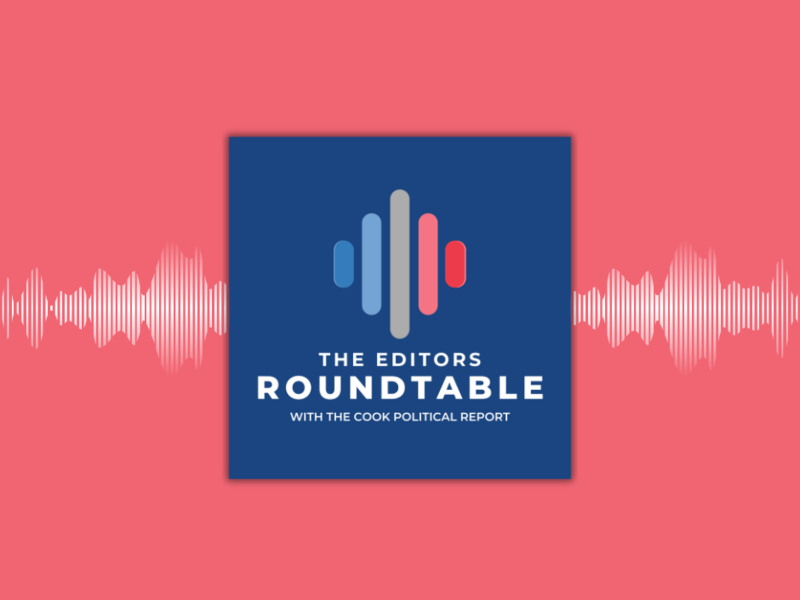
In all of the talk this past weekend about the 2020 presidential race, the line that resonated with me was James Carville’s quote in the Sunday New York Times. “This is an election that Trump can’t win but Democrats can lose,” he said. Indeed, it would be hard to overstate the extent of the damage that President Trump has inflicted on himself in the 29 months since he took office. Simply put, if this election is a referendum about Trump, he loses. He needs it to be about something else; he needs it to be a choice between the status quo and something (or someone) else that swing voters won’t like.
In that sense, last week’s pair of debates should leave Democrats with some reasons for worry. On the one hand, there was a lot of talent on that stage. On the other, in their zeal for winning the nomination, these candidates have crawled so deep into their party’s echo chamber, they are saying things that will not resonate well with the swing voters who are likely to determine the outcome of this election. In this highly polarized political time, ideological silos can be deadly. Democrats and liberals easily see the ideological silo on the Republican and conservative side, and how that can take them to exotic positions and language that turns off swing voters. But they may not recognize those silos sprouting up in their own party.
Several candidates carried themselves impressively last week. Sen. Kamala Harris helped her cause a lot; I would not want to be a defendant with Harris as the prosecutor. She was aggressive and effective. The question is whether she stepped a bit too far in her attacks on former Vice President Joe Biden.
Sen. Elizabeth Warren did herself a lot of good as well, as she effectively combined passion and wonkiness. One can disagree with her on issues and approach, but she delivered a forceful performance and should not be underestimated.
Interestingly, South Bend, Indiana Mayor Pete Buttigieg, the youngest person on either night’s stage, came across as the most presidential, the adult in the room, never interrupting and shouting over others, projecting a strength of character and seriousness that was very impressive. His owning up to problems in his city’s police force could not have been handled more deftly.
Relatively speaking, with a RealClearPolitics poll average of just eight-tenths of a percent heading into the debate, former Housing and Urban Development Secretary Julián Castro may have helped himself the most, doubling or tripling his pre-debate standing in the polls. It isn’t enough to get him into the top five or six candidates, but he will now register on the Richter scale.
While Sen. Cory Booker’s performance didn’t jump out as strongly, he seemed to help his cause some as well. Sen. Amy Klobuchar did fine, but it was not the breakthrough performance that she needed. Former Rep. Beto O’Rourke wasn’t bad, but he simply was not performing at the level that these others were. Then, of course, there was Marianne Williamson (D-Outer Space). I hope she got some book sales out of the night.
But there were elements in last week’s debates that should concern Democrats. While no one in the debates actually said they were in favor of hanging out a “y’all come” sign on the southern border, they sure could have left that impression. Most Americans do not support Trump’s wall proposal and they don’t like what look to all the world like internment camps. But at the same time, hearing Democrats advocate getting rid of Immigration and Customs Enforcement and expanding asylum won’t go over well with Middle America.
Then there is health care. Twice in my lifetime, Democrats have lost their majorities in the U.S. House of Representatives. Once was in 1994, during Bill Clinton’s first term, when Democrats lost their majorities in both the House and the Senate. The second was in 2010, during Barack Obama’s first term. A primary factor in both of those huge midterm-election losses was that Democrats had embarked on very aggressive attempts to reform the nation’s health care system. In both cases they overreached, which caused a backlash.
While health care should be a right and not a privilege, it is also true that for the half of Americans who receive their health insurance through their employers or at their place of work, about 70 percent are satisfied with their coverage. More importantly, however, these voters have shown that they are very skittish about politicians and government doing something, either deliberately or inadvertently, that could potentially jeopardize the coverage they currently have. The trust levels that they have in politicians and government are so low, they are enormously risk-averse. They simply don’t want to take a chance.
This is certainly not to suggest that Democrats should not talk about health care and address some of the shortcomings in the Affordable Care Act. But they should tread very carefully lest they trigger a third backlash, only this time in a presidential rather than a midterm election, one that most Democrats would agree is awfully important. While Trump and Republicans have very little credibility with swing voters on the health care issue, it isn’t a matter of who they trust more, but rather what do they fear more. Anyone who has spent six months around Capitol Hill knows that it is far easier to stop something than to do something. It is easier to raise doubts and fears than to allay doubts and fears.
There is no question that Republican strategists want this election to be about democratic socialism. While a lot of younger voters do not see the “socialist” label as threatening or pejorative, plenty of older people do. It's a loaded term that comes with baggage Democrats shouldn’t want. The people who like democratic socialism should seriously consider rebranding their product. To the extent that Republicans and the Trump campaign can make this a referendum on democratic socialism, he has a very good chance of getting reelected. To the extent that Democrats advance policies or messages that reinforce that impression with middle-age and older people in Middle America, they run the risk of handing the election to Trump.
This story was originally published on nationaljournal.com on July 2, 2019









Subscribe Today
Our subscribers have first access to individual race pages for each House, Senate and Governors race, which will include race ratings (each race is rated on a seven-point scale) and a narrative analysis pertaining to that race.